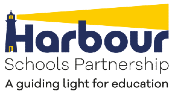2025-26 Class 1 (EYFS and Year 1) - Lower School
At Marwood School, Class 1 is a mixed-age class comprising Reception and Year 1 pupils. Nestled in the beautiful rural setting of North Devon, our approach is rooted in our core values of learning to learn, respectful consideration, and ambitious progress. We provide a nurturing, stimulating environment that supports both the Early Years Foundation Stage (EYFS) and the National Curriculum for Year 1, ensuring a smooth and meaningful transition between the two.
Learning to Learn
Our curriculum is designed to spark curiosity and foster a lifelong love of learning. Through a blend of play-based exploration and structured activities, children develop independence, resilience and critical thinking. Reception pupils engage with the EYFS framework, while Year 1 pupils begin to access more formal learning, with opportunities for cross-age collaboration and peer modelling.
Respectful Consideration
Social and emotional development remains central to our practice. Children learn to interact positively with peers and adults, developing empathy, cooperation and respect. Mixed-age learning encourages leadership and nurtures inclusive relationships, helping all pupils to thrive in a supportive community.
Ambitious Progress
We recognise and celebrate the uniqueness of every child. Our teaching is responsive and differentiated, ensuring that each pupil is challenged and supported appropriately. Reception children are guided through the EYFS developmental stages, while Year 1 pupils build on this foundation with increasing academic rigour. Our goal is to help every child set and achieve ambitious goals, preparing them for success in Key Stage 1 and beyond.
Curriculum Overview
Our curriculum is carefully designed to meet the needs of both Reception and Year 1 pupils at Marwood School. It draws from the seven areas of learning and development in EYFS and the National Curriculum subjects for Year 1, creating a cohesive and progressive learning journey.
EYFS Areas of Learning (Reception)
- Communication and Language
- Personal, Social and Emotional Development
- Physical Development
- Literacy
- Mathematics
- Understanding the World
- Expressive Arts and Design
National Curriculum Subjects (Year 1)
- English
- Mathematics
- Science
- History & Geography
- Art & Design
- Music
- Physical Education
- Computing
- PSHE & RE
Curriculum Structure
In Phonics and Mathematics the children are taught in separate year groups (reception and year 1), whilst other areas of the curriculum are taught to the whole class (reception and year 1) such as English/Literacy and Science.
The Arts (Including EYFS communication and language, personal, social and emotional development and literacy)
English
- Reading: Phonics, fluency, and comprehension through high-quality texts such as Boa’s Bad Birthday, Oi Frog, and Stella and the Seagull.
- Writing: Sentence construction, punctuation and creative writing.
- Speaking and Listening: Expressing ideas clearly and listening attentively.
Art and Design
- Exploring materials and techniques, learning about artists and expressing opinions.
Music
- Singing, playing instruments, and listening to a range of musical styles using Charanga units like Hey You! and Banana Rap.
STEM (Including EYFS mathematics and understanding the world)
Mathematics
- EYFS: White Rose units such as Alive in 5, To 20 and Beyond, and Make Connections.
- Year 1: Place value, addition and subtraction, fractions, shape and measurement.
Science
- EYFS: Exploring the natural world through observation and enquiry.
- Year 1: Topics include The Human Body, Animals, Plants and Seasonal Change.
Computing
- EYFS: Early mouse and keyboard skills.
- Year 1: Coding, data handling and digital literacy using Purple Mash.
Design and Technology
- EYFS: Creative construction and exploration.
- Year 1: Projects include textiles, mechanisms (wheels and axles) and food preparation.
Humanities (Including EYFS understanding the world)
Geography
- EYFS: Understanding local environments and seasonal changes.
- Year 1: Map skills, local and global comparisons, and fieldwork.
History
- EYFS: Exploring past and present through stories and play.
- Year 1: Significant people and events such as Florence Nightingale.
Religious Education
- EYFS: Celebrations and beliefs.
- Year 1: Units from the Devon RE syllabus including Incarnation, Salvation and Who is Muslim and how do they live?
Physical and Social Development (Including EYFS personal, social and emotional development and physical development)
Physical Education (PE)
- EYFS: Introduction to movement, ball skills and games.
- Year 1: Fundamentals, fitness, sending and receiving and team games.
PSHE and RSE
- EYFS: Building relationships, understanding emotions and personal safety.
- Year 1: SCARF units including Me and My Relationships, Valuing Difference and Growing and Changing.
Curriculum Map (Class 1 / Lower School)
The curriculum map for 2025-26 for lower school can be found below:
class 1 curriculum map 25 26 2.pdf
If you have any questions regarding this, please speak to Mrs Hume, Mrs Barnett or Dr Boon.
Preparing for Future Learning
Our blended approach ensures that children in Class 1 are well-prepared for the next stage of their education. Reception pupils transition smoothly into Year 1, while Year 1 pupils consolidate and extend their learning through rich, integrated experiences.
- Communication and Language: Builds strong foundations for literacy and spoken language across both year groups.
- Physical Development: Supports gross and fine motor skills essential for writing, PE and everyday tasks.
- Personal, Social and Emotional Development: Promotes confidence, emotional regulation and positive relationships.
- Literacy & English: Develops reading and writing skills, with phonics at the heart of early literacy.
- Mathematics: Introduces number, shape, space, and measures, progressing to problem-solving and reasoning.
- Understanding the World & Science/Geography/History: Encourages curiosity and exploration of the environment and wider world.
- Expressive Arts and Design & Art/Music/DT: Fosters creativity, imagination and self-expression.



